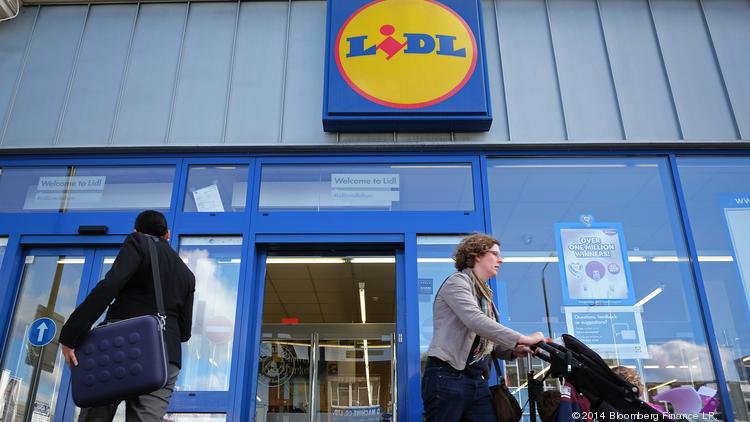Publix's next big threat, European grocer Lidl,
reveals U.S. expansion plans
Jan 26, 2016, 2:02pm
EST
Ashley Gurbal
KritzerReporterTampa Bay Business Journal
A
European discount grocer is heading straight for some of Publix Super Markets Inc.'s most
competitive markets.
Lidl,
based in Germany, has revealed real estate requirements for its U.S. stores. It
is looking to build stand-alone,
36,000-square-foot stores on sites that are at least 3.5 acres with 150 parking
spaces. In June, Lidl announced U.S. headquarters in the D.C. metro area, and
there was speculation that
the grocer could have 100 stores in the U.S. by 2018.
Lidl is gearing up for
a major U.S. expansion that could cut into Publix's market share.
SIMON
DAWSON | BLOOMBERG
For
now, Lidl is seeking sites between New Jersey and Georgia. Florida isn't in its
expansion plans yet, though it likely will be in the years ahead. As the
nation's third most populous state, Florida is an alluring place for grocers.
Several grocers have expanded successfully here in recent years — including Trader Joe's and sister company Aldi US,
a German discount grocer that could make consumers more willing to shop at
Lidl.
Even
without a Florida presence, Lidl's expansion plans pose a threat to
Lakeland-based Publix, an analyst said. Much like Aldi, Lidl sells a small
selection of private-label goods.
What
happens at Publix stores throughout its eight-state footprint have the
potential for a ripple effect in the Tampa Bay region. Publix employs more than
35,000 people here, many at its corporate headquarters in Lakeland.
The
Carolinas especially are already a grocery war zone, between Publix's expansion
there and Kroger Co.'s (NYSE: KR) acquisition of Harris Teeter.Wegmans Food Markets Inc., based in New York,
is targeting a site in Cary, North Carolina, for its first store in the Tar
Heel state.
Lidl,
with its private-label focus, poses a different threat than Wegmans and Kroger.
"Ninety
of the top 100 consumer packaged goods brands lost share in 2015," saidJohn Karolefski, the Cleveland-based publisher
of GroceryStories.com, while private-label products increased their market
share. Sales of private-label products are projected to reach $98 billion by
2018.
Whole Foods Market Inc. (NASDAQ: WFM),
which has been struggling to retain market share, is building a separate chain
of discount stores, 365 by Whole Foods, which will focus on its own line of
private goods.
"To compete effectively against discounters, Publix would
have to make more space on the shelf for their private label goods and promote
them more," Karolefski said. "That would create tension between them
and branded manufacturers."
Both
Publix and Kroger have put an emphasis on private-label products in recent
years. A Publix spokesman said previously that the grocer is "always
looking for other opportunities to expand our private-label offerings,"
which now include limited-edition wines.
Kroger,
which competes with Publix in Georgia and North Carolina, has several successful
private-label brands and in September 2015 launched another:
Hemisfares, which is upscale, international foods.
With
its private label focus, Lidl will be able to compete with potentially lower
prices — an area that's a potential downfall for Publix. Kroger is already knownfor lower
prices than Publix, an analyst said.
Higher
prices are a potential roadblock to Publix's growth. The grocer has been
focusing on more upscale touches in some of its stores — which has helped it
snare market share from specialty grocers like Whole Foods.
However,
Publix has seen some success with low-price campaigns. Its
bundling price strategies — buy one, get one offers — have helped it compete
with Walmart Stores Inc. (NYSE: WMT), which is its biggest competitor in
Florida.

No comments:
Post a Comment